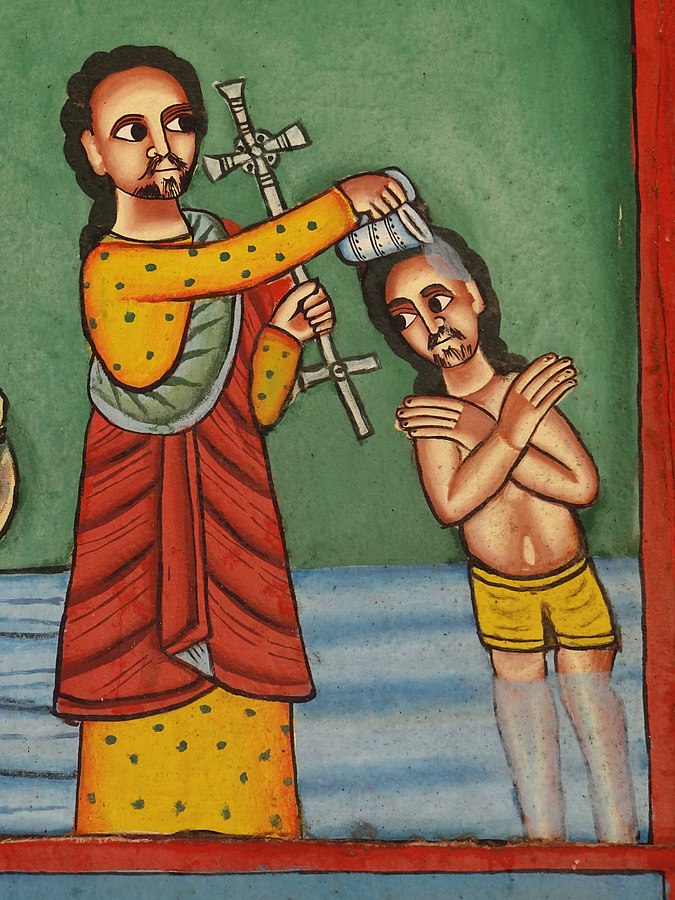Dear Readers,
Bear with me as I do some back-posting for Advent 2-4 and an only slightly late homily for Christmas Day.
JKR+
Lectionary Readings for the Second Sunday in Advent, Year A: Psalm 72:1-7, 18-19, Isaiah 11:1-10, Romans 15:4-13, Matthew 3:1-12
In keeping with the Advent tradition of covering The Four Last Things, today’s topic is Judgment (we covered Death in Advent 1). As noted in we’ve said about the reign of Christ in Advent 1, Isaiah prophesies about what Jesus’s judgment will look like: “He shall not judge by what his eyes see, or decide by what his ears hear; but with righteousness he shall judge the poor, and decide with equity for the meek of the earth; he shall strike the earth with the rod of his mouth, and with the breath of his lips he shall kill the wicked. Righteousness shall be the belt around his waist, and faithfulness the belt around his loins” (Isaiah 11:3b-5). Here, we learn that Jesus does not base his judgments on the empirical evidence that is important to our earthly legislatures; instead, the justice of God is partial to the meek and centers righteousness and equity. Divine justice is not about what can be proven, but what is, at core, righteous, true, and fair; this is a far cry from our own justice system, which often shows partiality to the rich, can be swayed by lobbies and corporate interests, and is inflected by the racism that also undergirds our nation. Isaiah invites us to imagine the ways in which, under the rule of Christ, all is made right, the breath of God slays the wicked, and the earth itself feels the effects of Jesus’ speech. A different vision of justice indeed!
Recalling the belts of righteousness and faith that the Lord wears in Isaiah’s prophecy, the great forerunner of Our Lord, John the Baptist, also presents a strong physical departure from the familiar, as he wears a camel’s hair outfit, a leather belt, and eats locusts and wild honey. Matthew’s gospel tells us that John is the fulfillment of Isaiah’s prophecy, naming him as “the voice of one crying in the wilderness ‘Prepare the way of the Lord. Make his paths straight.'” (Matthew 3:3). John the Baptist is also a prophet. His message is an uncomfortable, but invaluable one; he preaches repentance, i.e., self-examination, acknowledgement of wrongdoing, and the turning of one’s heart and life back to God. In the Jordan, John baptizes his followers and urges them to repent. In today’s gospel, a group of Pharisees and Sadducees approach John to baptized, and get an earful from the prophet about their actions. John indicts the Pharisees, the sect of Judaism to which Jesus belonged and that strictly adheres to the Torah, and the Sadducees, the sect of Judaism that denies the resurrection, for wrongdoing, saying that they should not think of themselves as justified based on their descent from Abraham, but should instead amend their behavior and return to right relationship with God and their neighbors.
The repentance that John describes is not just a change of mind but also a change of heart and a reorientation of one’s priorities towards righteousness. All of these elements of repentance come to bear in the Greek Bible usage of the word metanoia, which is commonly translated as “repentance”. By calling the Pharisees and Sadducees to task, John the Baptist is making a political statement, yes, but he’s also reminding them of what Isaiah just taught us: God’s justice does not look like ours, and we should put our efforts toward understanding God’s justice, committing ourselves to righteousness. He goes on to remind both his followers and the two groups that he’s just admonished that he is not the final authority on this matter but instead a witness to the coming Messiah; whilst John baptizes with water, Jesus will baptize with the Holy Spirit and with fire. Jesus’ justice distinguishes between true worship, grounded in divine justice, and authoritative posturing that is not grounded in faith. May we take time to examine ourselves, heed John the Baptist’s call to repentance, and look forward to the Messiah’s Second Coming with expectancy.

Ethiopian icon of The Baptism of Christ, Axum, Ethiopia, Date Unknown